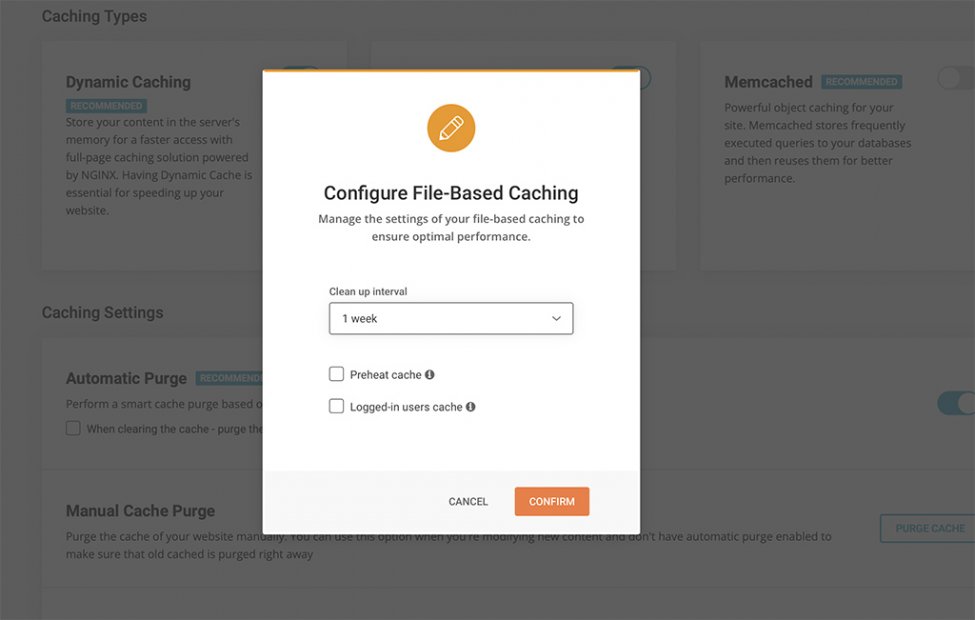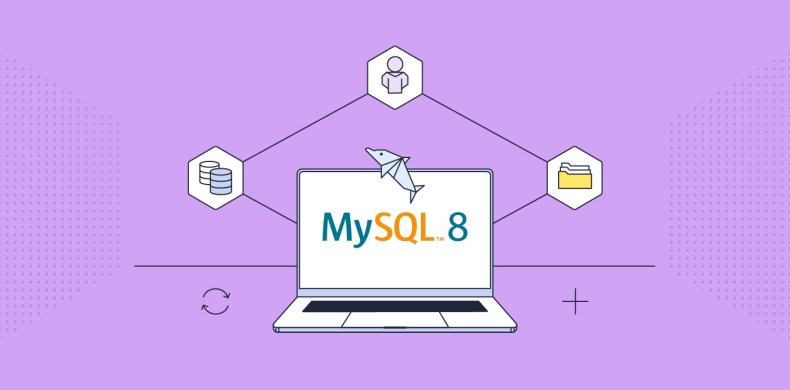Speed Optimizer (formerly SG Optimizer) is Now Available аnd Free for All WordPress Sites
Table of Contents
When we started developing the SiteGround Optimizer plugin back in 2012 we wanted it to be a bridge between our services and our clients’ WordPress sites. During the years we introduced more and more features and the SiteGround Optimizer (now named Speed Optimizer) became one of the best performance optimization plugins for WordPress, based on popular ratings. And naturally, we started getting inquiries about how websites non-hosted on our platform could benefit from it. That interest gave us a push to decouple the plugin from its dependency on our infrastructure and convert it into a hosting-agnostic, completely free solution for all. We are now excited to announce that as of its latest version, the Speed Optimizer plugin can be used by any WordPress website, regardless where it’s hosted!
Features Available on Any Hosting Platform
Making the Speed Optimizer available on other platforms wasn’t a simple task. Part of the success of the plugin is tied to the SiteGround server setup that is built with performance in mind and takes advantage of some of its unique features. To open it up, for every feature that was dependent on our platform’s services, we had to come up with a solution that would work just as effectively on different platforms and configurations.
File-based Caching (NEW FEATURE)

Nowadays caching is one of the most effective means to optimize performance. When looking for alternatives to Dynamic Caching (built-in feature for all SiteGround websites) we decided to implement File-based caching because of its versatility and compatibility with different hosting configurations. File-based Caching can be used on its own on websites hosted outside SiteGround or as an additional caching layer for SiteGround customers who already have Dynamic Caching and Object caching (Memcached) enabled.
Some great features of the File-based caching are the ability to keep cache for logged in users, pre-heating cache (especially useful for rarely opened pages that are opened for the first time in a while) and defining longer cache expiration. These options are configurable in the plugin interface. Although file-based caching alone is generally slower than the Dynamic caching, our tests show that its implementation in Speed Optimizer is still up to 20% faster than any other plugin that provide similar performance-optimization functionality that we have tested.
Environment Optimizations
All users can enjoy several types of environment optimizations that will tidy up your WordPress environment to achieve top performance. Here you can find features like WordPress Heartbeat Optimization where you can define how the WordPress API interacts with your application to optimize resource usage, and Schedule Weekly Database Maintenance to make sure that your WordPress remains tidy and uncluttered.
Frontend Optimizations
The website’s front-end code can often be heavy and significantly reduce loading speed. There are several features in the Speed Optimizer that can optimize it and as a result speed up your website. Minifying your HTML, CSS and JavaScript output will decrease the size and number of server requests related to these types of files and as a result decrease loading time. We have made these functionalities available through simple toggles in the plugin. You can specify which types of files you want to minify, combine and even exclude from minification or combination. And if all of this sounds too technical for you, you can just look for the “Recommended” labels next to each option to figure out what would have the greatest impact on your website’s performance.
Media Optimizations
There are several media optimization tools in the Speed Optimizer that will work on all hosting platforms. You can enable Lazy Load with which only the media in the visible part of the browser will be loaded. This makes loading faster and smoother for longer pages with multiple media items. You can also define the Maximum Image Width allowed for images on your website. A lot of themes and plugins tend to upload excessively large images that slow loading speed without ever being displayed in their full width.
SiteGround Exclusive Features
As mentioned earlier, our platform has some unique speed settings and services, which cannot be replaced with plugin functionality alone since they need the specific server environment to run as designed. These remain exclusively available to websites hosted on SiteGround.
Dynamic Caching and Object Caching
One of the best speed-enhancing features you can get for your website and our top choice when we talk about speed, is the Dynamic Caching. The Dynamic Caching is part of our proprietary 3-level server caching implementation that relies on NGINX Direct Delivery for static cache handling, Dynamic Cache for dynamic content and Object Caching (Memcached) for storing data and objects in the RAM. We believe that Dynamic Caching is essential for every website and we have it included in all of our hosting plans. From the Speed Optimizer plugin you have control over advanced WordPress-specific settings for the Dynamic Cache and Memcached to get the most of this technology.
Image compression and WebP
The Image Compression and WebP features of the Speed Optimizer plugin are two essential features available to websites on the SiteGround platform exclusively. With our image compression algorithm you can decrease your image size (and respectively the time it takes for your images to load) by up to 85%, while keeping the image quality high for your visitors. You can also enable WebP which will convert your images to a WebP format which adds an additional reduction in size without affecting image quality.
Opening the plugin to websites hosted outside of SiteGround was a big step for us. After running multiple tests on different hosting platforms and benchmarking performance against WordPress plugins with similar functionalities, we’re confident that the Speed Optimizer plugin is the best performance optimization tool you can get for your website regardless where it’s hosted. And it’s completely free. Download it here, try it yourself and let us know how it works for you by leaving a comment in the section below.




Comments ( 11 )
Thanks! Your comment will be held for moderation and will be shortly published, if it is related to this blog article. Comments for support inquiries or issues will not be published, if you have such please report it through
David Maier
Great stuff! I already use SiteGround for all of my websites and recommend switching to SiteGround to all of my clients, but every now and then somebody just doesn't want to go through the hassle. I really appreciate to be start using SG Optimizer now for these clients as well. THANK YOU!
Kathy
Really appreciate ALL your tips and advice as I am a novice in the world of creating and maintaining a website. Great support, thank you.
Adam
Can file based caching be used without creating any issues for woocommerce? - I currently have a rule to cache everything on Cloudflare, would that conflict with file based caching? Thanks :-)
Hristo Pandjarov Siteground Team
Yes, it can but that won't fix your CF issues. I would recommend disabling Clouflare and see how it performs.
Adam
Hi, i don't have any issues with cloudflare, i just wanted to know if they can/should be used together. Is there any documentation on how it works so i can try to make a decision myself?
Hristo Pandjarov Siteground Team
It depends on your particular needs. If your visitors are from the same continent using CF doesn't make much sense. If you're truly global, it is good idea to have a CDN. In that case with CF full page caching enabled in the plugin, everything will be purged when an event or manual request is made and will work out of the box. Custom setups of course may require additional work or manual cache purging.
Rashid
Really appreciate ALL your tips and advice as I am a novice in the world of creating and maintaining a website.
Nik
Can you explain why you would want to exclude Media Types from Lazy Load? i.e. Mobile, Videos, WooCommerce
Gergana Zhecheva Siteground Team
Hi Nik, Our experience shows that the exclusion of certain file types can prevent some incompatibility issues. Still, please note that this is not a one-size-fits-all feature. That is why we recommend that each website owner adjusts the exclude options based on their website setup.
Dom
Hi there. The SG plugin used to have a feature that was allowing us to test how our site config (theme, plugins, etc.) would cope if changing PHP version used. That would be handy to have this back - or in SiteTools / Devs / PHP test? - since for ex WP 6.1 is said not to be fully compatible with PHP 8+ yet, and since there are no plugins available (up to date) to address that purpose. Cheers,
Ivan Naidenov Siteground Team
Thank you for the suggestion, Dom! We agree - it's always best to test how your site will handle a newer PHP version before going live with the changes. That's why we propose using our Staging tool: https://www.siteground.com/tutorials/staging/ . In a few clicks, you'll be able to create a copy of your site and verify that the PHP version you've chosen is compatible with its components like themes and plugins.
Start discussion
Thanks! Your comment will be held for moderation and will be shortly published, if it is related to this blog article. Comments for support inquiries or issues will not be published, if you have such please report it through